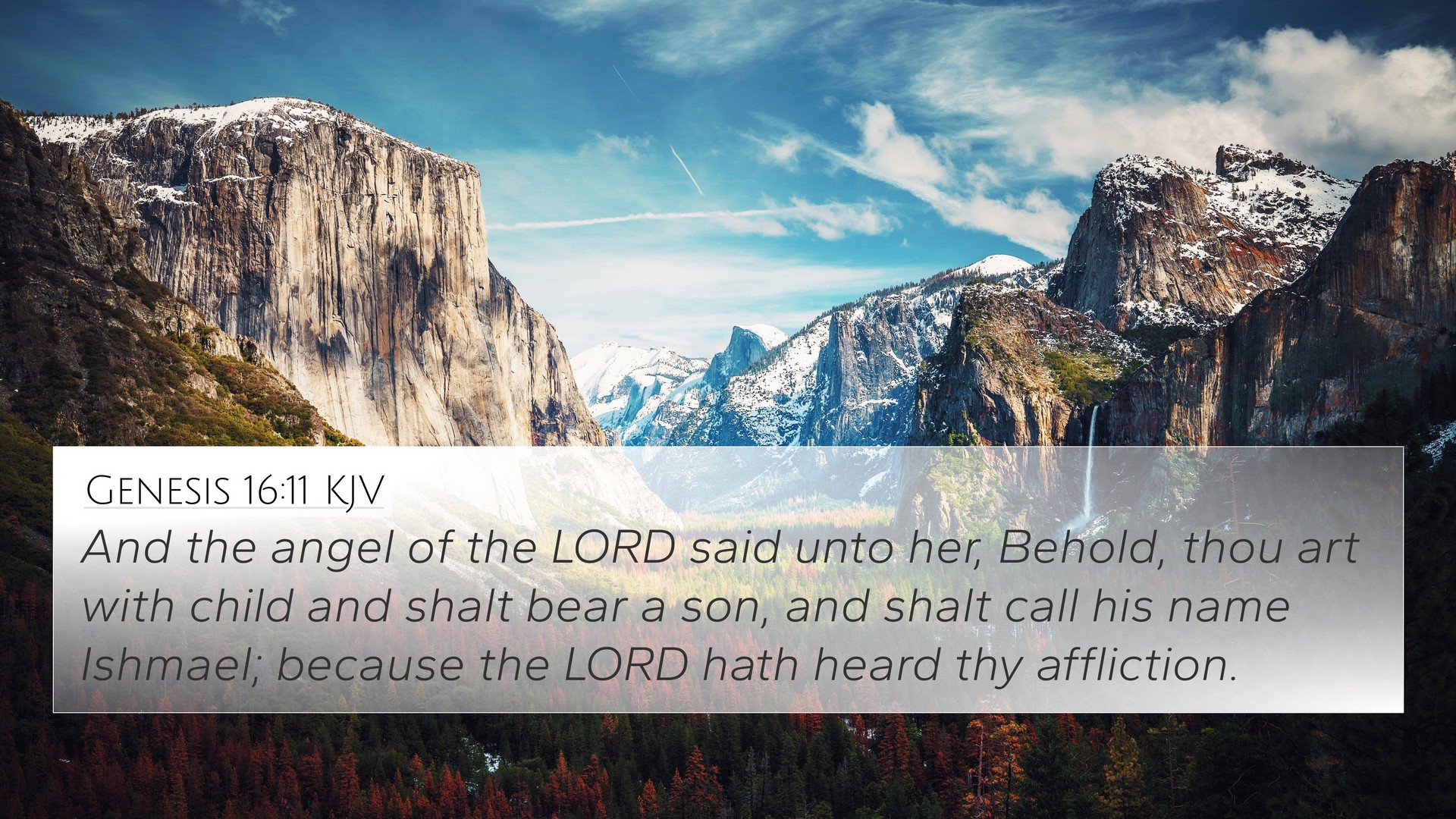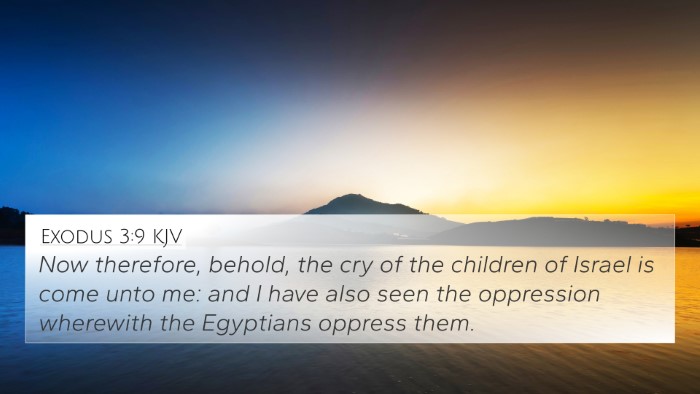Understanding Genesis 16:11
Genesis 16:11 states: "And the angel of the LORD said unto her, Behold, thou art with child, and shalt bear a son, and shalt call his name Ishmael; because the LORD hath heard thy affliction." This verse occurs during a pivotal moment in the narrative of Hagar, the maidservant of Sarah, who is pregnant with Abraham's child, Ishmael. This passage holds significant theological and historical implications.
Significance of the Messenger
The reference to the angel of the LORD in Genesis 16:11 indicates a divine messenger sent to deliver God's message to Hagar. According to Matthew Henry's Commentary, the angel's role signifies God's direct involvement in human affairs, particularly in the lives of those who are marginalized and suffering.
The Name Ishmael
The name "Ishmael" is deeply meaningful, translating to "God hears." Albert Barnes notes that this reflects God's attentiveness to human troubles, emphasizing that He listens to the cries of the oppressed. This serves as an inspiration for those suffering injustice.
Context of Affliction
Hagar’s circumstances relate closely to deeper themes of suffering and divine intervention. Adam Clarke remarks on the significance of God acknowledging Hagar’s affliction, elucidating that this highlights God's compassion for those in distress, regardless of their social standing.
Thematic Connections in the Bible
Genesis 16:11 connects to numerous other scriptures that discuss God’s mercy and care for the downtrodden. Here are some Bible verse cross-references and their significance:
- Exodus 3:7: "And the LORD said, I have surely seen the affliction of my people which are in Egypt." - This verse reinforces the theme of divine empathy for the suffering.
- Psalm 34:18: "The LORD is nigh unto them that are of a broken heart; and saveth such as be of a contrite spirit." - This verse echoes God's proximity to those in distress.
- Isaiah 41:17: "When the poor and needy seek water, and there is none, and their tongue faileth for thirst, I the LORD will hear them." - A testament to God's promise to respond to those in dire need.
- Matthew 9:36: "But when he saw the multitudes, he was moved with compassion on them..." - This discusses Jesus's compassion, linking Jesus’s mission to God's attention to suffering.
- Luke 1:52: "He hath put down the mighty from their seats, and exalted them of low degree." - This highlights God’s concern for the humble and downtrodden.
- John 10:14: "I am the good shepherd, and know my sheep, and am known of mine." - Implying God’s intimate knowledge of our struggles.
- James 1:27: "Pure religion and undefiled before God and the Father is this, To visit the fatherless and widows in their affliction..." - This emphasizes the duty to care for the vulnerable.
Cross-Referencing Biblical Texts
By cross-referencing these scriptures, one can see a unified biblical theme. The connections between Bible verses related to suffering illustrate God's overarching commitment to alleviate distress:
- Use a Bible concordance to locate themes of suffering, hearing, and divine visitation.
- Engage in cross-reference Bible studies to draw parallels between Old Testament narratives and New Testament fulfilment.
- Employ a Bible cross-reference guide to organize and categorize the recurring motifs of divine concern throughout scripture.
How to Use Bible Cross-References
Study the links between different verses for deeper insights into God’s character:
- Identify connections between Old and New Testament texts addressing the same themes.
- Employ dependable tools for Bible cross-referencing to find relevant scriptures quickly.
- Explore how various passages illustrate similar themes, such as God's listening ear as demonstrated in Genesis 16:11.
Conclusion
Genesis 16:11 not only reveals God's presence in personal afflictions but also reflects larger theological principles about His compassion for those in sorrow and His ability to offer hope. The connections between this verse and others enrich our understanding of Scripture and encourage deeper exploration of the biblical narrative.
















